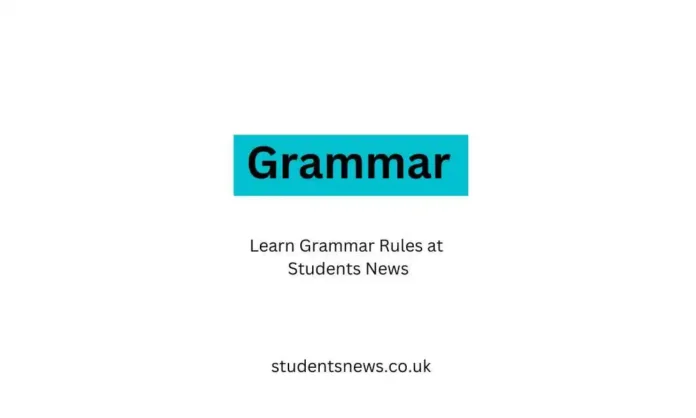When learning English, you might wonder about the word “what” and its role in sentences. Is it an adjective? Let’s explore this together.
What Part of Speech is the Word ‘What’
The word “what” is a versatile and commonly used term in the English language. Its role can change depending on how it’s used in a sentence. Let’s break down the different parts of speech that “what” can represent, with clear examples to help you understand each usage.
1. Interrogative Pronoun
When “what” is used to ask questions, it functions as an interrogative pronoun. It stands in for the information being asked about.
Examples:
- “What is your name?”
- “What do you want for dinner?”
In these sentences, “what” is used to ask for specific information.
2. Interrogative Adjective
“What” acts as an interrogative adjective when it modifies a noun by asking a question about it. It appears directly before a noun.
Examples:
- “What time is it?”
- “What book are you reading?”
Here, “what” is used to ask for more details about the noun it modifies.
3. Relative Pronoun
As a relative pronoun, “what” introduces a clause and relates to a noun mentioned earlier or understood from context.
Examples:
- “I don’t know what he is doing.”
- “She explained what happened.”
In these cases, “what” helps connect the clause to the rest of the sentence.
4. Exclamatory Pronoun
“What” can also be used to express strong emotions or reactions, functioning as an exclamatory pronoun. This usage often appears in exclamatory sentences.
Examples:
- “What a beautiful day!”
- “What an amazing story!”
Here, “what” highlights the speaker’s strong feeling or reaction.
The word “what” can serve as an interrogative pronoun, an interrogative adjective, a relative pronoun, and an exclamatory pronoun. Understanding its various roles can enhance your grasp of English and improve your communication skills. Keep an eye on the context and position of “what” in a sentence to determine its part of speech. With practice, recognizing and using “what” correctly will become second nature!
So, Can ‘what’ be Used as an Adjective
Yes, “what” can indeed be used as an adjective! When “what” is used to ask questions and it modifies a noun, it functions as an interrogative adjective. This might sound a bit complex, but let’s break it down with simple examples.
Examples of ‘What’ as an Adjective
- “What time is it?”
- Here, “what” modifies the noun “time.” It is asking for specific information about the time.
- “What book are you reading?”
- In this sentence, “what” modifies the noun “book,” asking for specific information about the book being read.
- “What color do you prefer?”
- “What” modifies the noun “color,” asking for specific information about the preferred color.
In each of these examples, “what” is directly followed by a noun, indicating that it is providing more information about that noun.
How to Identify ‘What’ as an Adjective
To identify “what” as an adjective, look for these clues:
- It will be part of a question.
- It will be immediately followed by a noun.
- It will be asking for specific information about that noun.
Recognizing “what” as an adjective can make understanding and forming questions much easier. It’s a small but useful piece of grammar that helps specify the information being sought.
So, yes, “what” can be used as an adjective when it modifies a noun in a question. This usage helps ask for specific details about the noun. Keep practicing, and soon identifying “what” as an adjective will become second nature!
Mistakes and Misconceptions
Understanding the various roles of the word “what” can be tricky, and it’s common to make mistakes or have misconceptions about its usage. Let’s address some of these to help clarify how “what” functions in different contexts.
Mistake 1: Confusing Interrogative Pronouns with Adjectives
A common mistake is confusing when “what” is an interrogative pronoun versus when it is an interrogative adjective.
Example of Interrogative Pronoun:
- “What is your favorite color?” (Here, “what” stands alone as the subject of the question.)
Example of Interrogative Adjective:
- “What color is your favorite?” (Here, “what” modifies the noun “color.”)
To avoid this mistake, remember that as an adjective, “what” will always be directly followed by a noun.
Mistake 2: Misidentifying Relative Pronouns
Sometimes, people mistake “what” used as a relative pronoun for an interrogative adjective.
Example of Relative Pronoun:
- “I don’t know what he wants.”
In this sentence, “what” introduces a clause and relates to the object of the verb “wants,” not modifying a noun directly.
Misconception 1: “What” is Always an Interrogative Word
Another misconception is thinking “what” is always used to ask questions. However, “what” can also be used in statements and exclamations.
Example of Exclamatory Pronoun:
- “What a beautiful day!”
In this case, “what” expresses a strong emotion rather than asking a question.
Misconception 2: “What” Cannot Modify Nouns
Some might think “what” cannot function as an adjective, but as we’ve seen, it can modify nouns in questions, asking for specific information.
Correct Usage:
- “What time is the meeting?”
Here, “what” modifies the noun “time,” making it clear that “what” can indeed act as an adjective.
Tips to Avoid Mistakes
- Check the Position: If “what” is directly before a noun and asking a question, it’s likely an adjective.
- Context Matters: Look at the role “what” plays in the sentence. Is it asking a question, introducing a clause, or expressing an exclamation?
- Practice with Examples: The more you see and use “what” in different contexts, the easier it will become to identify its role.
By understanding these common mistakes and misconceptions, you can better grasp the versatile uses of “what” and use it correctly in your writing and speech. Keep practicing, and soon it will be much clearer!


